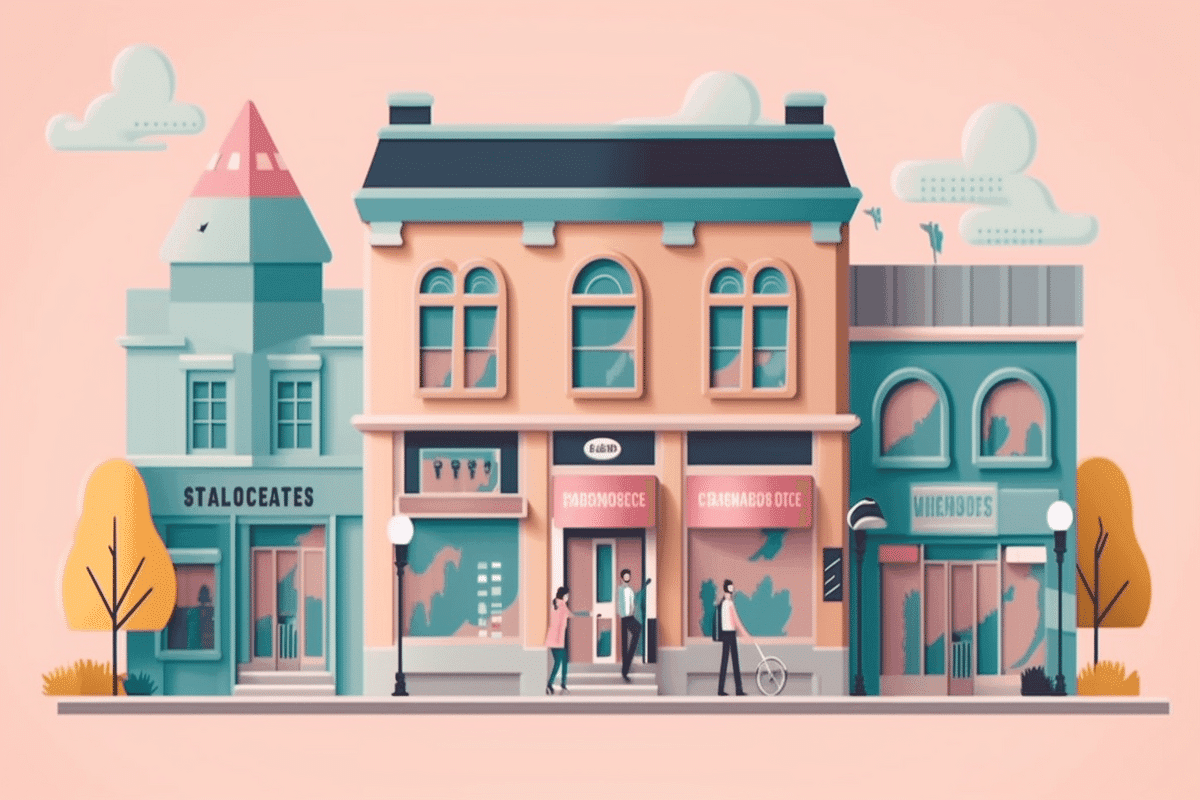The Ultimate Guide to Commercial Property Insurance in Canada
By Daniel Schoester | Published on 22 May 2023


Commercial property insurance is a type of business insurance that covers commercial property from losses caused by natural disasters, theft, and fire. The coverage generally includes repairing or replacing damaged property and any lost income from business interruption due to the damage. While businesses don’t need commercial property insurance in Canada, some landlords may require it.
The average cost of commercial property insurance in Canada is around $1,000 to $10,000+ annually. It varies depending on the size of your business, the type of business you run, and the location of your business. Other factors, such as coverage limits, deductibles, and perils, will determine the monthly premium.
Commercial property insurance generally covers theft. However, it is essential to note that coverage has some limitations. For example, if you have not taken reasonable steps to protect your property from theft or have not reported the theft promptly to the police and your insurer, your claim may be denied.
The Two Types of Commercial Property Insurance
Canada has two types of commercial property insurance policies: all risks and named perils. An all-risk policy is generally more comprehensive and covers a broader range of risks than a named perils policy. However, it may also be more expensive. A named perils policy may be more affordable but may provide less coverage than an all-risk policy. The remainder of this section will walk you through each type of policy.
All Risks
An all-risk policy is generally more comprehensive and covers a broader range of risks than a named perils policy. It covers all risks except those specifically excluded in the policy. The insurance will protect your business if you experience an excluded loss. However, it is essential to note that there are some exclusions to all-risk policies. For example, damage caused by war or nuclear accidents is typically excluded from all-risk policies.
Named Perils
A named perils policy provides coverage for losses resulting from specific perils outlined in the policy. This type of policy is usually more cost-effective than an all-risk policy, as it typically only covers losses caused by risks specified in the policy. Named perils policies often include coverage for losses due to fire, smoke damage, lightning, hail, vandalism, and theft.
Common Coverage Options
Now that you understand the categories of coverage, it’s time to look at what you can insure. The cost of your insurance will increase as you protect more objects. This section will walk you through the most common items to cover with your insurance. However, only some policies will include each coverage option. You must review the contract to determine the covered events and their reimbursement limits.
Building coverage
This coverage protects the physical structure of your business property, including walls, roofs, and fixtures, from damage or loss. It generally protects you from damages caused by natural disasters, theft, and fire. It is essential to note that this coverage does not include the land on which the building stands.
Business personal property coverage
This coverage option protects your business’s personal property, such as equipment, inventory, and supplies, from damage caused by natural disasters, theft, and fire. It covers repairing or replacing your business’s personal property if it is damaged or destroyed.
Business interruption coverage
This coverage compensates for lost income or extra expenses incurred due to the temporary closure or reduced operation of your business following a covered loss. For instance, if your business premises are damaged by fire, and you need to relocate temporarily to continue operations, this coverage will cater to the extra expenses incurred. It can also cover the loss of income that your business would have earned if it had been able to operate normally.
Cyber liability coverage
Business cyber insurance protects your business from losses arising from data breaches, cyberattacks, or privacy violations, including notification and legal expenses. With the increasing use of technology in industries, cyber threats have become prevalent, and it’s vital to ensure that you have this coverage to protect your business.
Equipment breakdown coverage
This coverage option protects your business’s equipment from damage caused by mechanical breakdowns. It covers repairing or replacing your business’s equipment if it is damaged due to mechanical breakdowns.
Flood and earthquake coverage
This option protects your business from damage caused by floods and earthquakes. It covers the cost of repairing or rebuilding your building and replacing your business’s personal property if they are damaged or destroyed due to floods and earthquakes.
The Cost of Commercial Property Insurance
Commercial property insurance can range from $1,000 to $10,000+ annually. Smaller businesses will pay towards the lower end of the range. However, enterprise corporations can exceed the upper range. These prices are for a coverage limit of $1 million.
Despite the many factors influencing the cost of commercial property insurance in Canada, there are ways to lower your premiums. Namely, you can shop around through insurance brokers, business insurance comparison tools or direct providers. Many insurers offer discounts if you bundle your property insurance with other types of insurance, such as liability or auto insurance. This section will walk you through the factors affecting your monthly premiums.
Scope of Coverage
One of the most significant factors affecting the cost of commercial property insurance in Canada is the type and amount of coverage you require. The more comprehensive the coverage, the higher the premiums will be. For example, if you need coverage for natural disasters like earthquakes, floods, or hurricanes, your premiums will be higher than if you only require coverage for fire and theft.
Business Location and Size
The location and size of your business are also essential factors that influence the cost of commercial property insurance. Your premiums will be higher if your business is in an area prone to natural disasters or has a high crime rate. Similarly, if your business is located in a large building or has a lot of valuable equipment, your premiums will be higher.
Industry Riskiness
The industry that your business operates in can also impact the cost of commercial property insurance. Specific sectors or companies with higher hazards, such as those involving hazardous materials or heavy machinery, may face higher rates due to the increased risk of loss or liability claims. For example, a construction company typically pays more for insurance than a retail store.
Claims History
Your claims history is another factor that insurers consider when determining the cost of your commercial property insurance. If you have a history of making claims, your premiums will be higher than if you have a clean claims history.
Security Measures
Security measures can also impact your commercial property insurance rates. Businesses with installed security systems, alarms, or sprinklers may qualify for discounts on their premiums. Insurance companies view these measures as ways to reduce the risk of loss, so it’s essential to consider investing in security measures to help lower your insurance costs.
Choosing the Right Policy
The amount of coverage you need for your business depends on several factors, such as the size of your business, the type of business you have, and the risks you face. Working with an insurance agent to determine how much coverage you need for your business is essential. However, there are generally three things you should think about when selecting the right commercial property insurance policy.
The risks and hazards specific to your industry and location
Depending on your business type and location, you may face different risks and hazards. For example, a restaurant may be more at risk for fires than an office building, while a flood zone business may need additional water damage coverage. You can save money through specific perils coverage if you know precisely the risks you’re facing.
The value of your property
Understanding the value of your property is vital when selecting a commercial property insurance policy. This includes any buildings, machinery, equipment, or other assets that an insurance policy would cover. Knowing the value of your property will help you determine how much coverage you need to protect it adequately.
Compare policies from different insurers
Compare business insurance coverage limits and costs from multiple insurance providers. Also, look for their reputation, customer service, and more qualitative information. The following section explains this step in more detail.
Comparing Different Insurance Companies and Their Policies
When it comes to commercial property insurance, choosing the right policy to provide you with the most comprehensive coverage is essential. With so many insurance companies, knowing which one to choose can be challenging. This section will discuss the factors to consider when comparing commercial property insurance.
- Cost: The most obvious method is to compare the price of your quotes. Aside from the monthly premium, also review the deductible. If an accident happens, you must pay this amount before receiving coverage.
- Coverage: While cost is important, reviewing the covered events and their limits is equally critical. Ensure you understand what is covered under each policy to be confident that your assets are protected.
- Financial Stability: It’s also important to consider the insurer’s financial stability. You don’t want to choose a company that cannot pay out claims if something happens to your property.
- Customer Service: Consider the insurance provider’s customer service after comparing policies. Read reviews online to see how their customers have rated them. Also, consider their customer service policies and whether they have an online platform or a live representative, you can contact anytime.
- Reputation: Before making your final decision, look into the insurance provider’s reputation in the industry. A reliable insurer should have good feedback from other businesses and a strong financial rating. You can do this by reading reviews online or asking for recommendations from other business owners.
The Bottom Line
In conclusion, commercial property insurance protects your business property from various risks and perils. By understanding the basics, exploring the available coverage options, and evaluating your needs, you can make an informed decision and choose the right policy for your business. Always read the fine print and ask questions before signing up for any insurance policy. With the right coverage in place, you can have peace of mind knowing that your business is protected.
